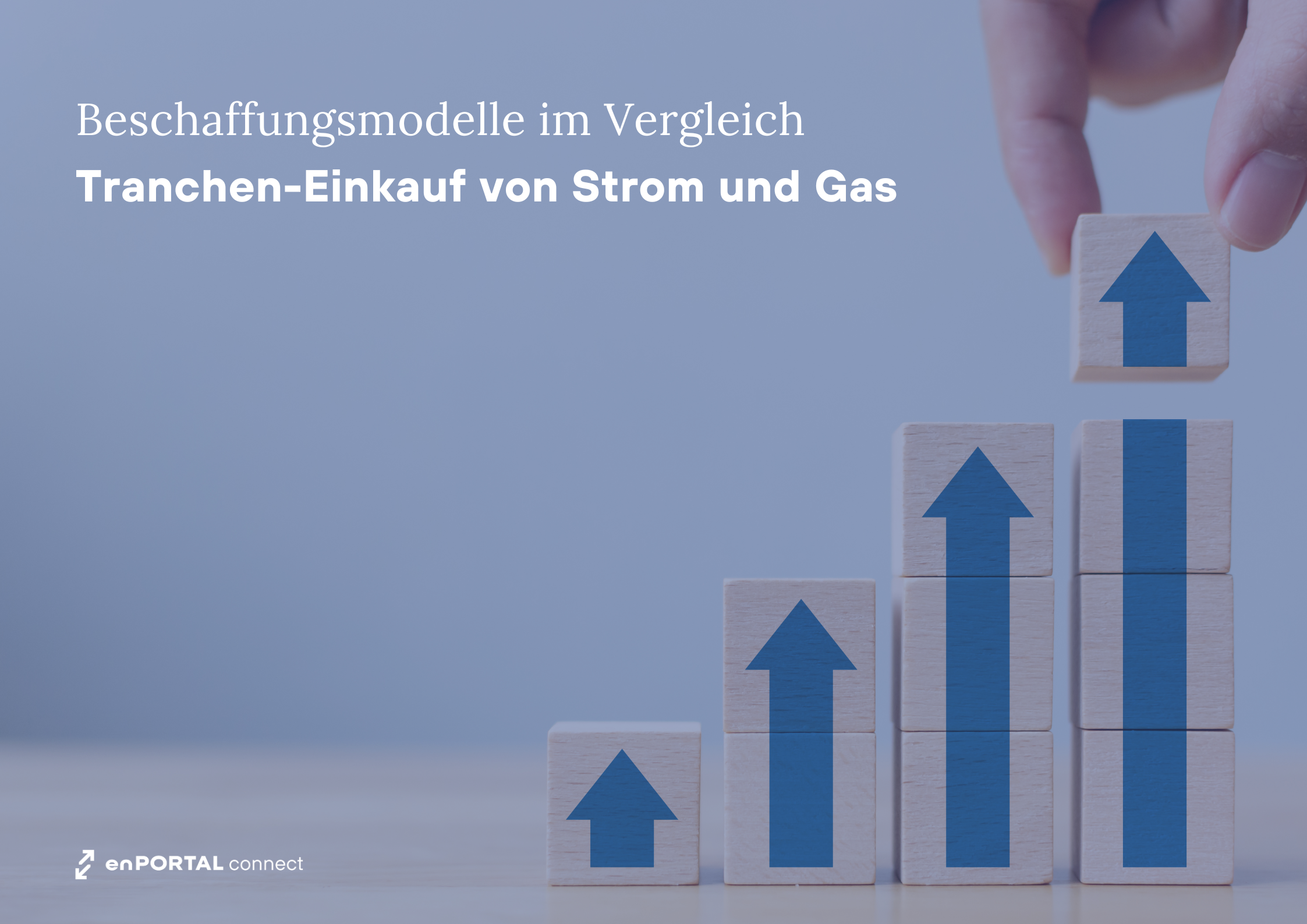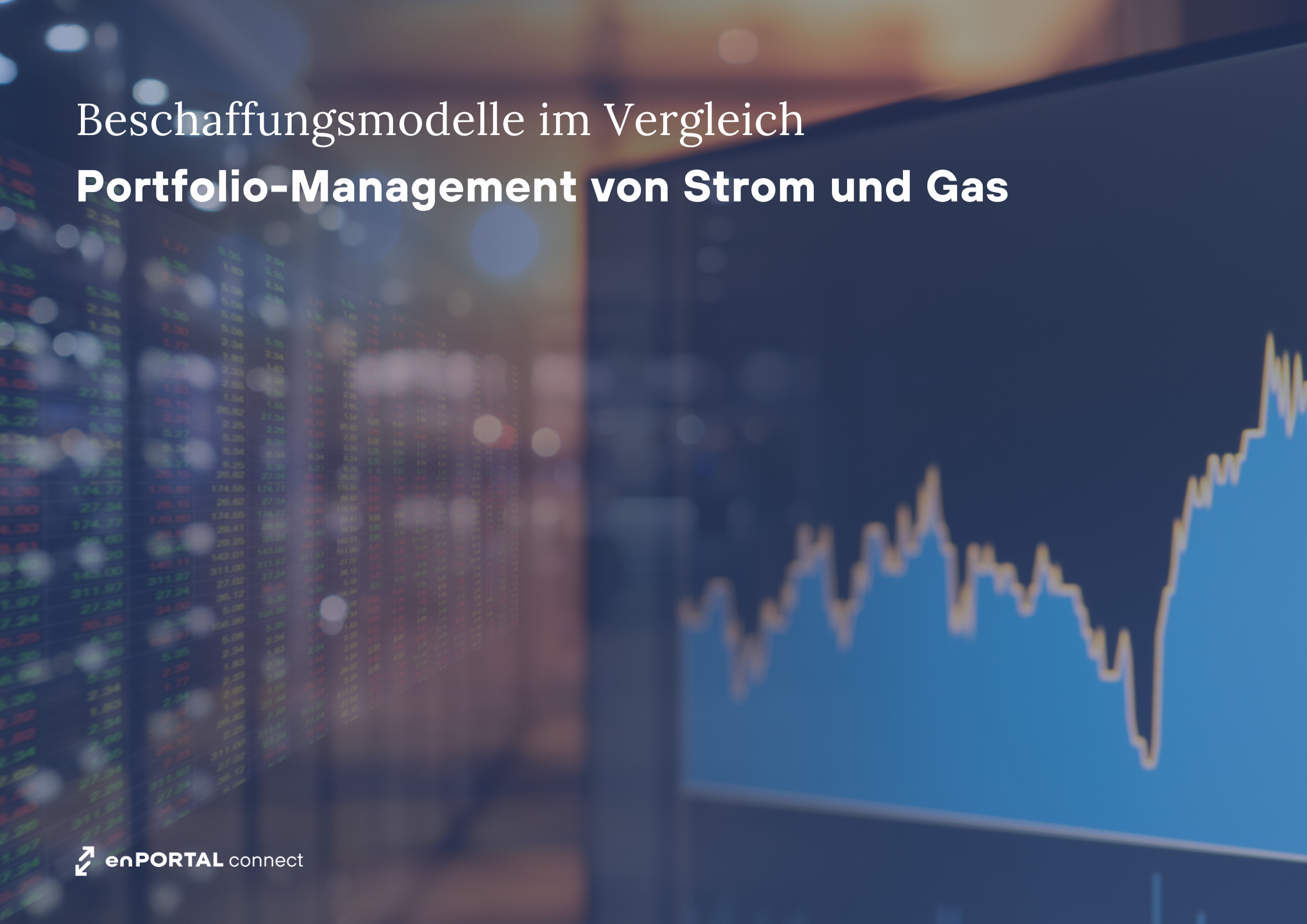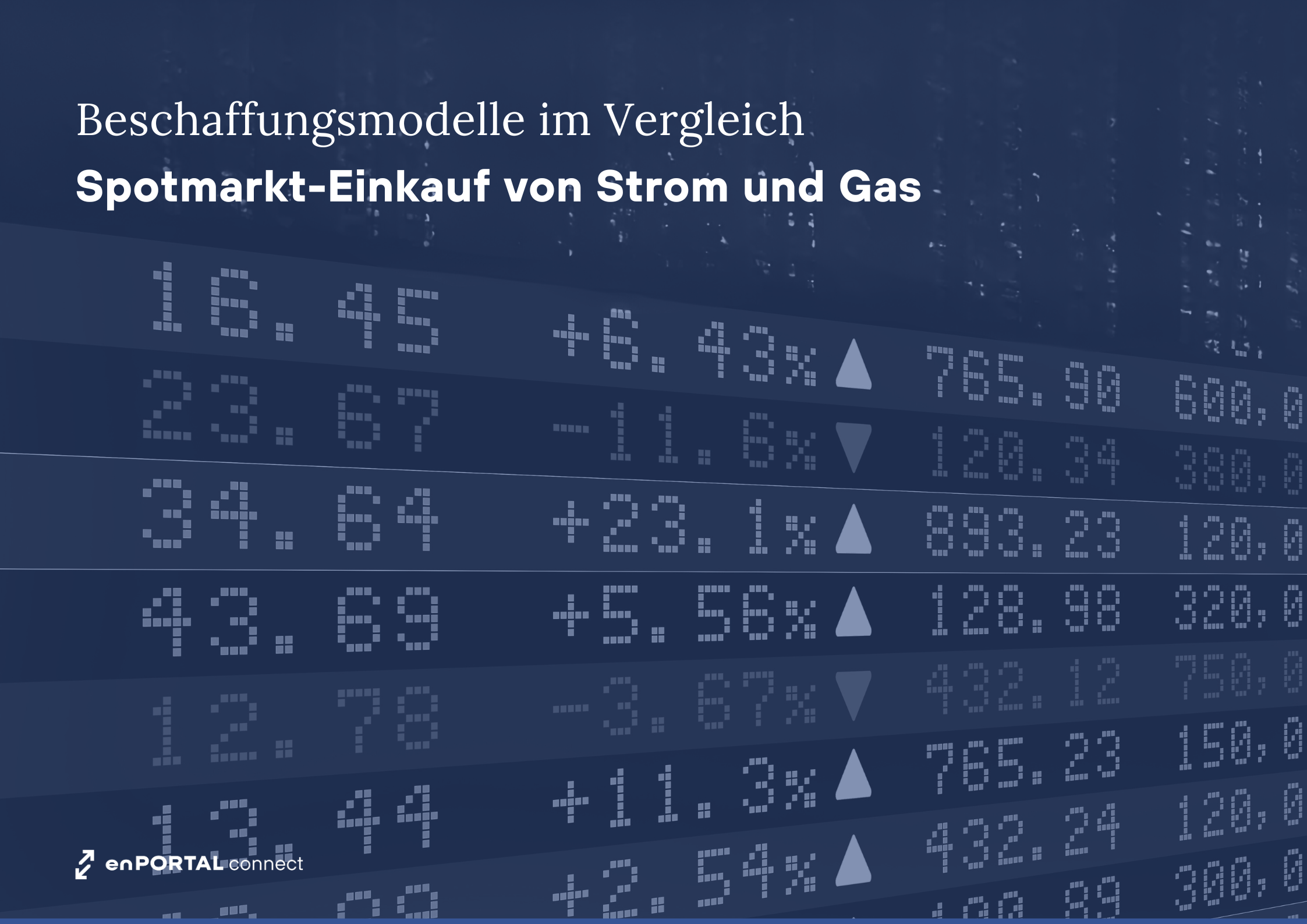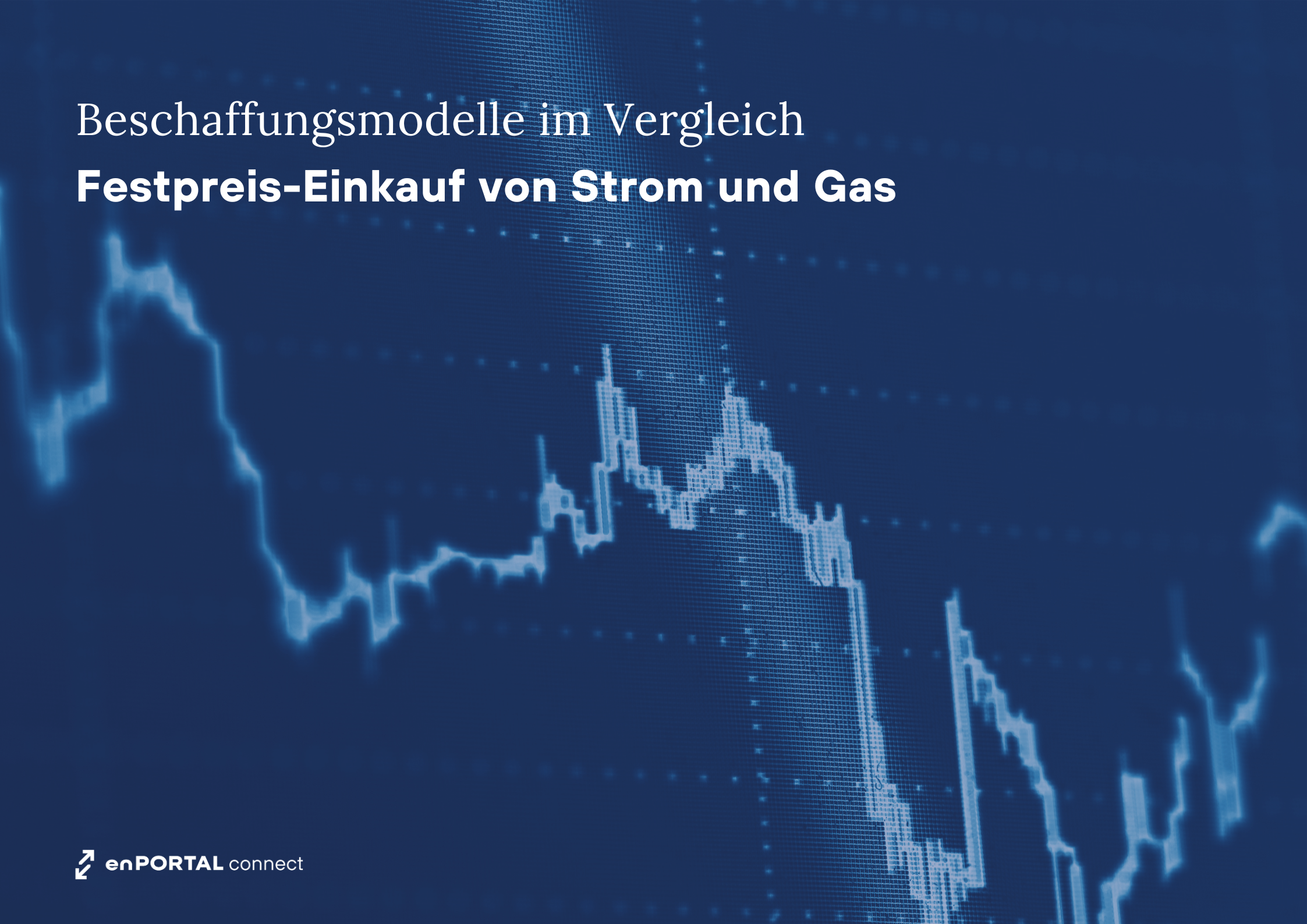This week we are looking at tranche purchasing of electricity and gas and explaining what this means and what points need to be considered. We look at the advantages and disadvantages for companies in the industrial, SME and commercial sectors and explain the main opportunities and risks associated with energy purchasing. In just a few minutes of reading time, we aim to convey the key content in a practical way so that you can get an idea of this procurement model even without any prior knowledge. We are happy to share our energy expertise with you and explain the opportunities that arise from digital platforms and automated processes.
In the first step, we provide a brief definition and explanation of what we mean by tranche purchasing and what information is relevant here.
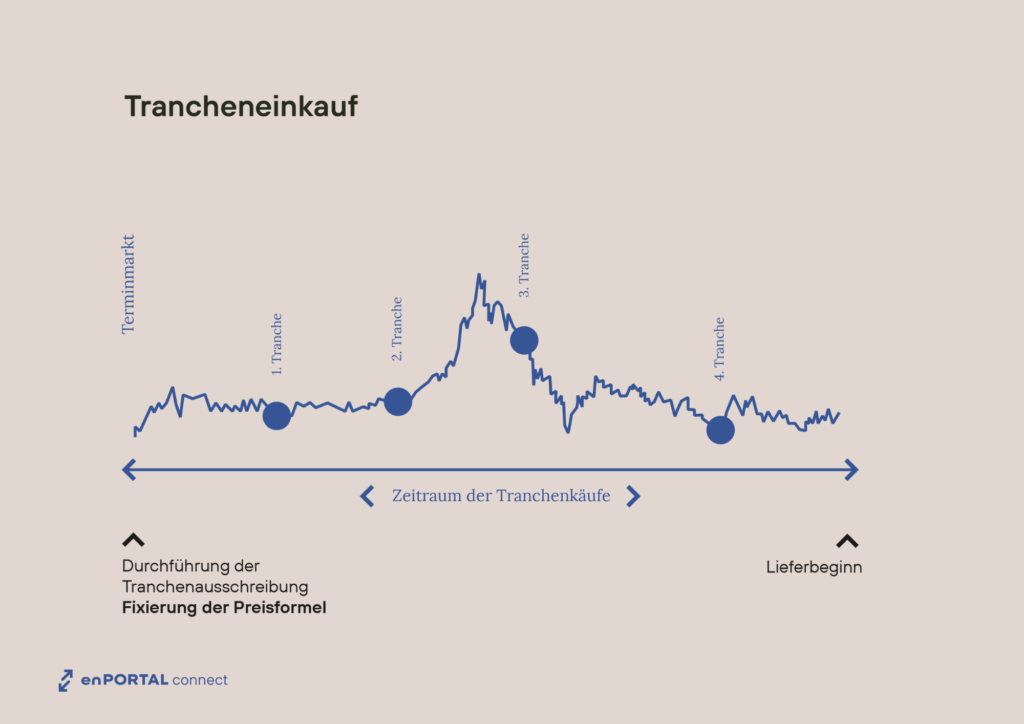
Purchasing electricity or gas in instalments - what does this mean?
When purchasing energy in tranches, there is not just "one" purchase date for the entire quantity of energy (e.g. for a delivery year), but when purchasing energy, partial quantities, the tranches, are agreed. The diagram shows, for example, 4 tranches that are agreed before the start of delivery. This means that in this case, energy purchasers set themselves four, but fundamentally several points in time (compared to fixed-price purchasing, where there is only a single purchase time; see our last article on LinkedIn).
There can also be more or fewer instalments than four. The number of instalments depends on the volume (total annual consumption) of the respective customer and on current market opportunities.
Tranche tender: What is being negotiated?
In a tender, a price formula, the so-called "tranche price formula", is agreed with the energy supplier. On the one hand, this is the surcharge that the supplier levies on the exchange price for the supply, i.e. the profile surcharge. Base and peak factors are also part of the price formula. The base factor in electricity consumption refers to the base load or the constant demand for electricity over a longer period of time, while the peak factor represents the peak load or the maximum demand during certain times. The peak share is the additional consumption that occurs on weekdays from Monday to Friday between 8 am and 8 pm. The base/peak ratio is different for each company and the prices for base and peak also vary.
At the same time, it is also agreed how many tranches are to be fixed, e.g. one partial quantity per quarter. The energy buyer determines the size of this instalment at the time of fixing based on current market conditions. The tranches can be of the same size or of different sizes. If the market price is very low, purchasers also have the option of procuring the entire remaining quantity and finalising the tranche fixation, e.g. in the middle of the year for the coming delivery year.
Tranche tendering: Organisation
Compared to fixed-price purchasing (see our article on the topic of fixed prices), tranche purchasing involves a medium administrative and personnel effort, as not just one decision has to be made, but several decisions. This means that energy buyers deal with the development of the exchange and the fixing of tranches at several points in time and therefore spend longer on the entire energy procurement process. Additional skills compared to fixed-price purchasing are only required to a limited extent; energy buyers who otherwise agree fixed prices and have little experience can also procure tranches.
Finally, there are various tranche fixings and settlement models as well as tranche purchases with spot market shares, but these would go into too much depth in this article. We deliberately want to give you a brief overview and have therefore focussed on horizontal tranches, which are used most frequently. There are also other specifications, such as vertical tranches with and without spot market shares. The above model of horizontal tranche procurement can be expanded almost at will in order to utilise the possibilities of adding various vertical tranches of different characteristics and proportionate spot market additions.
If you are still interested in these specific topics on tranche purchasing, please feel free to contact us personally at any time.
enPORTAL connect: In the wake of the energy crisis, many companies have had to adapt their procurement model to market conditions and change it at short notice. With the support of automated processes from the enPORTAL connect energy platform and with the help of their personal account manager, enPORTAL connect customers were able to quickly change their procurement model and thus optimally adapt it to market conditions. This enabled market-driven purchasing with full transparency for expiring contracts.
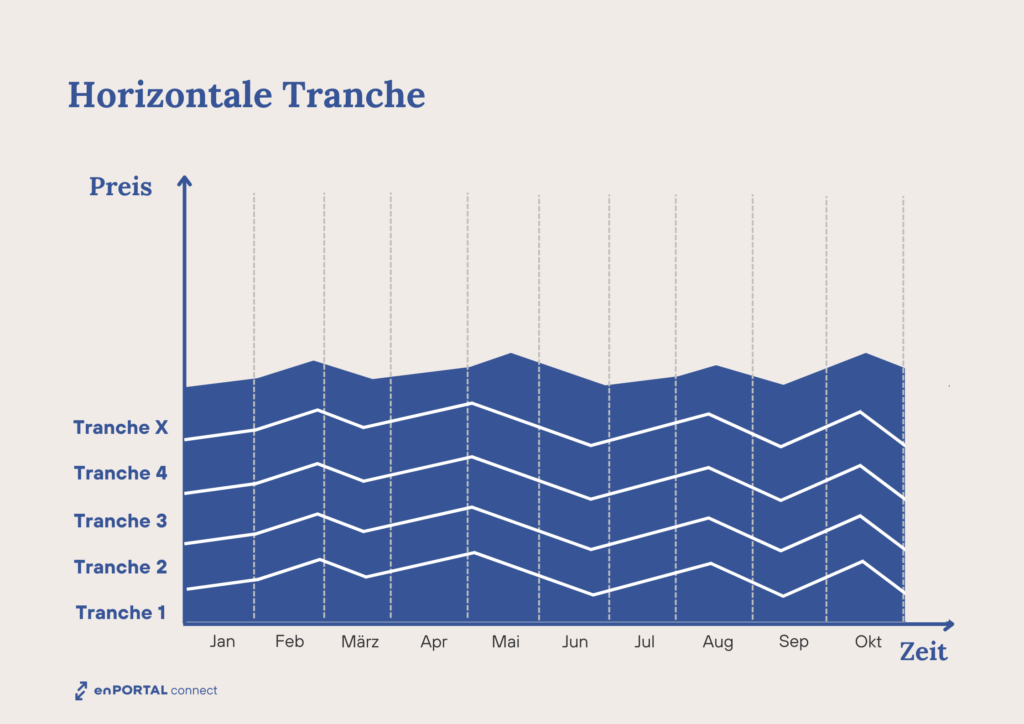
Finally, we would like to summarise the advantages and disadvantages of tranche purchasing:

Advantages of tranche purchasing
- The price risk is reduced as you avoid having to procure the entire amount of energy in one day at prices that may be too high. Compared to fixed-price purchasing, the risk is spread.
- Reacting quickly to favourable stock market prices increases opportunities and reduces risks.
- Additional expertise is only required to a manageable extent. Energy buyers can simply change their procurement model for a new delivery period.

Disadvantages of tranche purchasing
- Constant market observation is necessary, which prolongs the "energy purchasing" project (fixing of partial quantities) and means greater involvement with the energy exchange (although this can also be an advantage!) à enPORTAL Note: Alarm settings in enPORTAL connect automate this process for you.
- Several fixing times necessary, which may mean more effort for internal decision-making processes.
- Partial fixing means that the energy price for the entire delivery year is only fixed after the last instalments have been procured. This results in the final price for the entire delivery year (compared to the fixed price, where the costs are fixed immediately after the contract is concluded).
Of course, there are many more details to report on tranche purchasing. We have deliberately focussed here on the most important facts and information to give you an overview of this procurement model in just a few minutes.
If you would like to know more details or would like a personal exchange on the topic, please contact our colleague Norman Lübeck -> To the contact
